Turkey’s conservative ruling party won an unexpected victory in Sunday’s parliamentary elections, dashing opposition hopes and cementing the rule of president Recep Tayyip Erdoğan.
With the vast majority of the vote counted on Sunday night, Turkey’s Daily Sabah newspaper projected the Justice and Development Party (known by the Turkish acronym AKP) to win more than 49 percent of the popular vote, more than enough for a significant majority of seats in the country’s 550-seat parliament.
The surprising comeback of Erdoğan’s party ensures that party and its brand of “conservative democracy” will continue to be the dominant force in Turkish politics, continuing more than 13 years of rule.
But regardless of Sunday’s results, Erdoğan and the parliament have a challenging task ahead of them. The government faces a bitterly divided public, deep challenges to Turkey’s economy, and serious security and strategic problems surrounding Turkey’s involvement in the crisis in Syria.
“It’s going to be uncomfortable,” said Nigar Göksel, a senior analyst with International Crisis Group based in Istanbul. “It’s going to be very hard to govern because the sides are so polarized. And it’s not going to change overnight. Trust in the rule of law; it’s so weak.”
Sunday’s results effectively reversed the results of the previous election less than six months ago, in which Erdoğan’s party lost its majority in parliament.
Erdogan and Prime Minister Ahmet Davutoğlu preside over a country in which large portions of the public, particularly Kurds in the southeast of the country, distrust the state. The government also recently intensified military action against Kurdish militants and other armed groups as the country faces an upsurge in attacks that have been blamed on ISIS.
Bayram Balci, a scholar with the Carnegie Endowment for International peace, said it was an open question “how the AKP will gather a very divided and polarized Turkish society,” but that the unilateral victory in the elections could even give the party a freer hand to negotiate with Kurdish guerrillas.
“I am optimistic as the clear victory for the AKP will help him to be less divisive,” he said. “I think the authoritarianism we have seen was partly because the AKP and more precisely Erdogan was very vulnerable. With this victory they will be able in the AKP to find a more moderate policy.”
The previous parliamentary election in June was a setback for Erdogan and the AKP, who were deprived majority. The election also catapulted a new force into official politics in the form of the pro-Kurdish People’s Democratic Party (known as HDP), which joined parliament for the first time after winning a 10 required percent of the popular vote.
The HDP is a diverse coalition of Kurds, other ethnic minorities, and leftists that advocates ethnic pluralism. Turkish progressives hailed the HDP’s rise—along with the AKP’s troubles—as a sign of a deeper shift in Turkish politics, perhaps even the end of the Erdoğan era.
Those hopes unraveled in the months that followed. Turkey’s four main political parties failed to come up with a governing arrangement. In another ominous sign, two massive bomb attacks took place, one targeting a group of left-wing volunteers heading to Syria, another striking an opposition rally in the capital, Ankara, killing at least 102 people in Turkey’s deadliest insurgent attack in recent history. Those bombings and other events heightened concerns about security and Turkey’s overall political stability. The HDP was forced to forgo major campaign rallies out of concern for their own members’ safety.
In Sunday’s election, preliminary results suggested HDP managed to maintain the 10 percent it needed to remain in parliament. But the party’s leaders and supporters experienced none of the euphoria of the June election.
“Unfortunately, it was a difficult and troubled period of election campaigning. Lives were lost,” said HDP leader Selahattin Demirtas, after he casting his vote on Sunday, according to The Associated Press. “My wish is that a great hope for peace and calm emerges [from the vote].”
Erdoğan’s supporters have attempted to link Demirtas and his legal pro-Kurdish party to the Kurdish militants of the Kurdistan Workers Party (PKK), which Turkey and the United States classify as a terrorist group. Erdoğan’s government has accelerated airstrikes and other action against PKK and related militants in eastern Turkey, Iraq, and in Syria, where Kurdish fighters are allied with the U.S. in fighting ISIS.
The recent airstrikes have complicated an already messy geopolitical puzzle. But in domestic Turkish politics, there is some evidence that concerns about stability may have worked in the AKP’s favor in this election.
See the Aftermath of the Turkish Elections
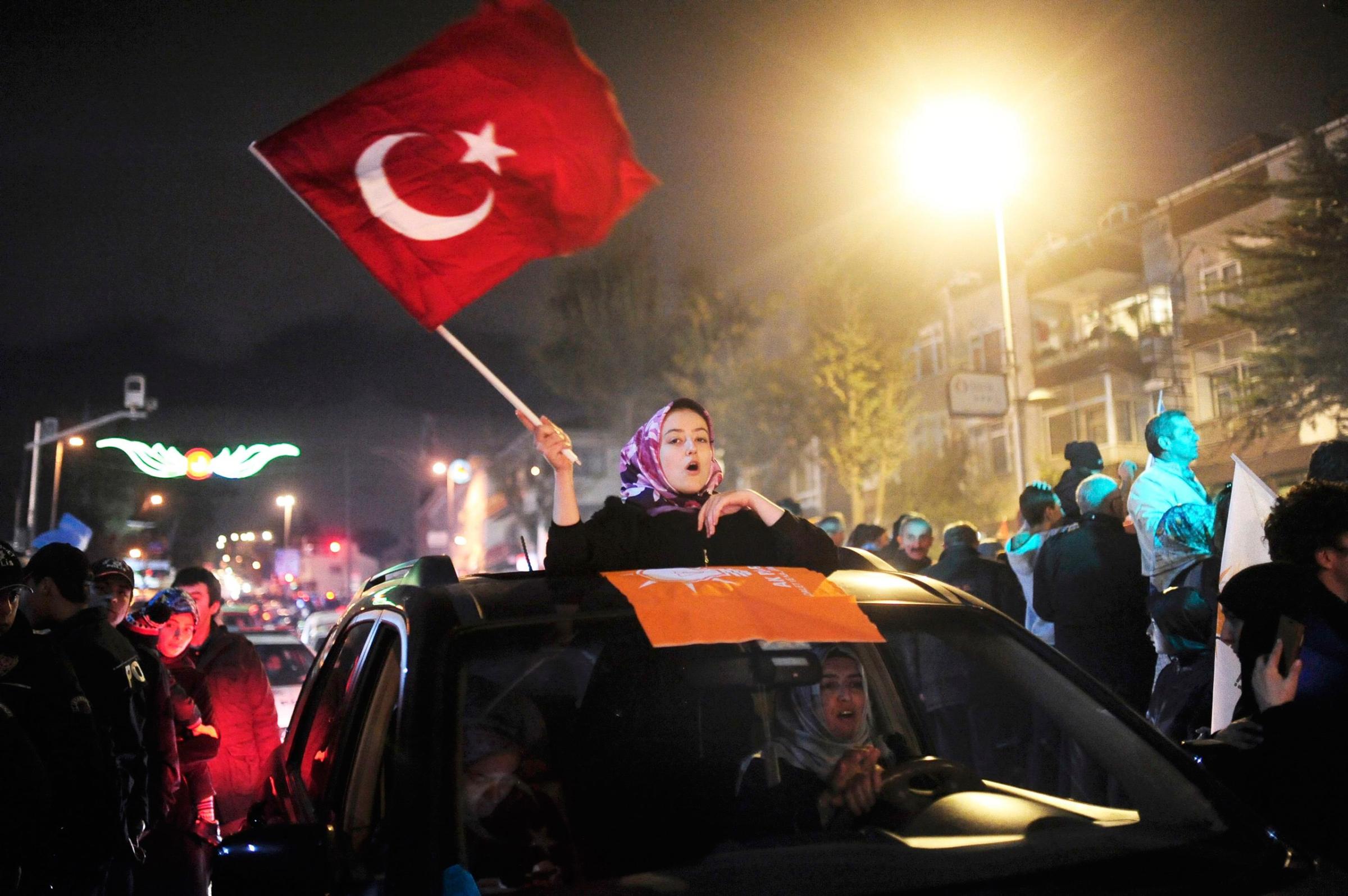
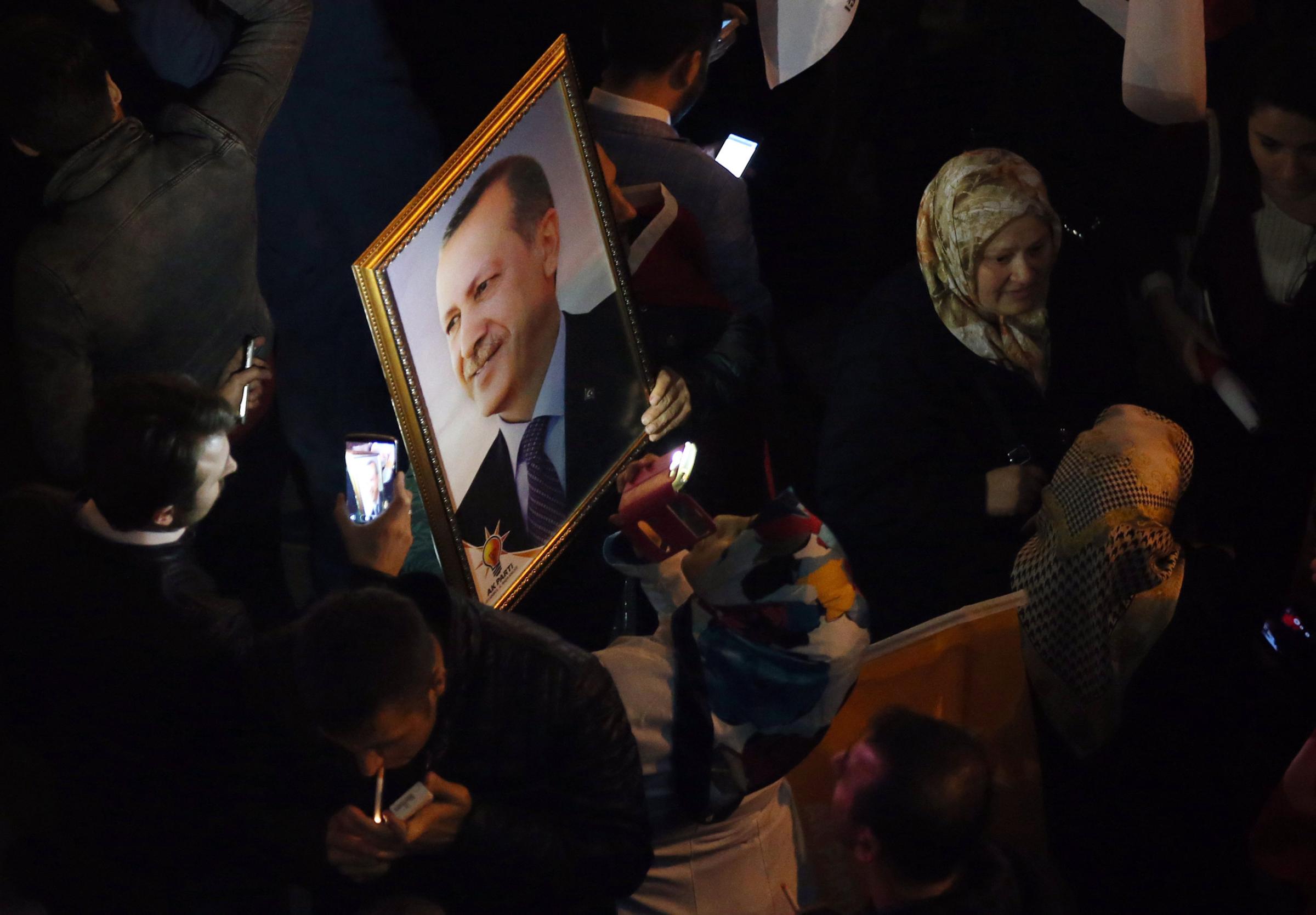
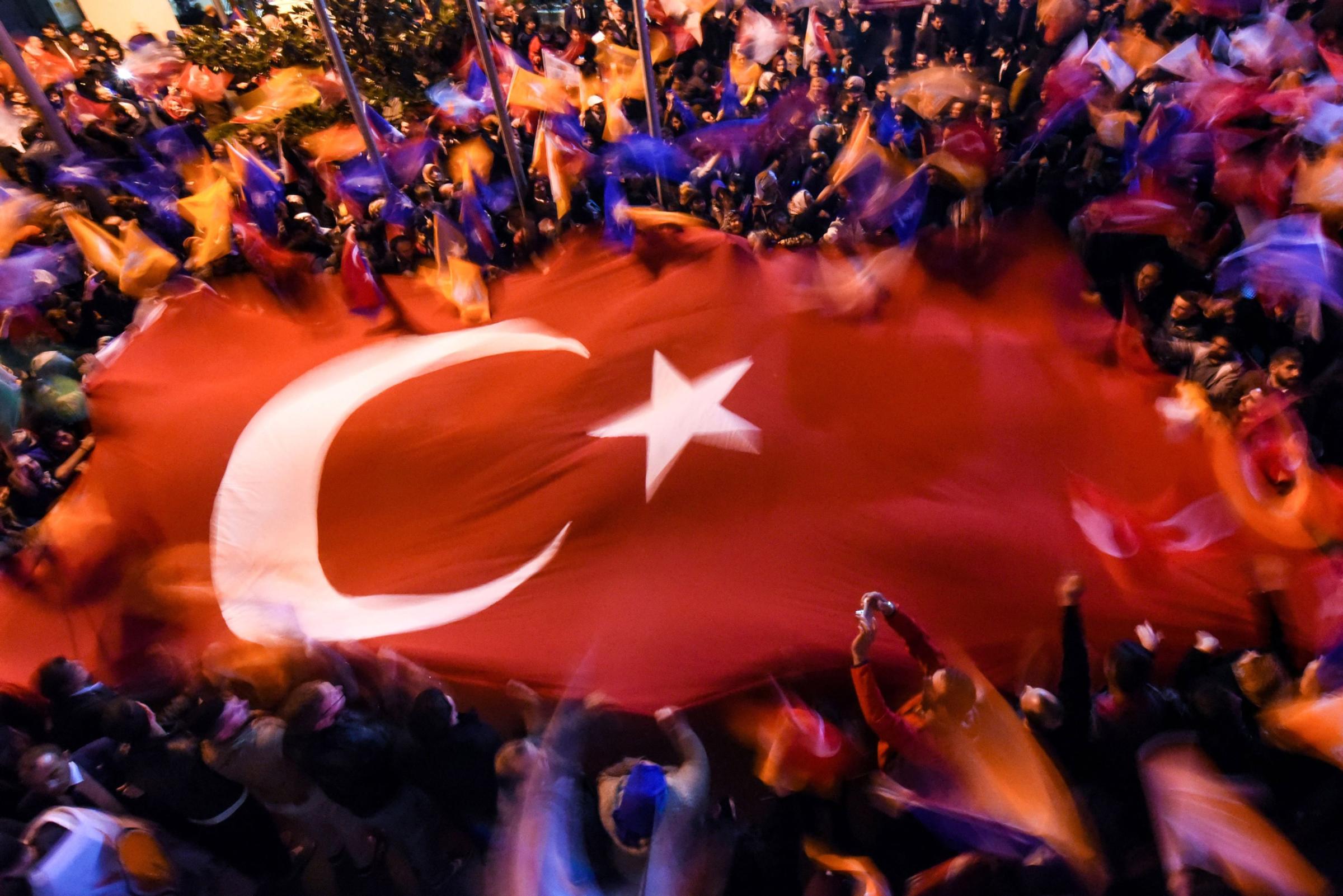
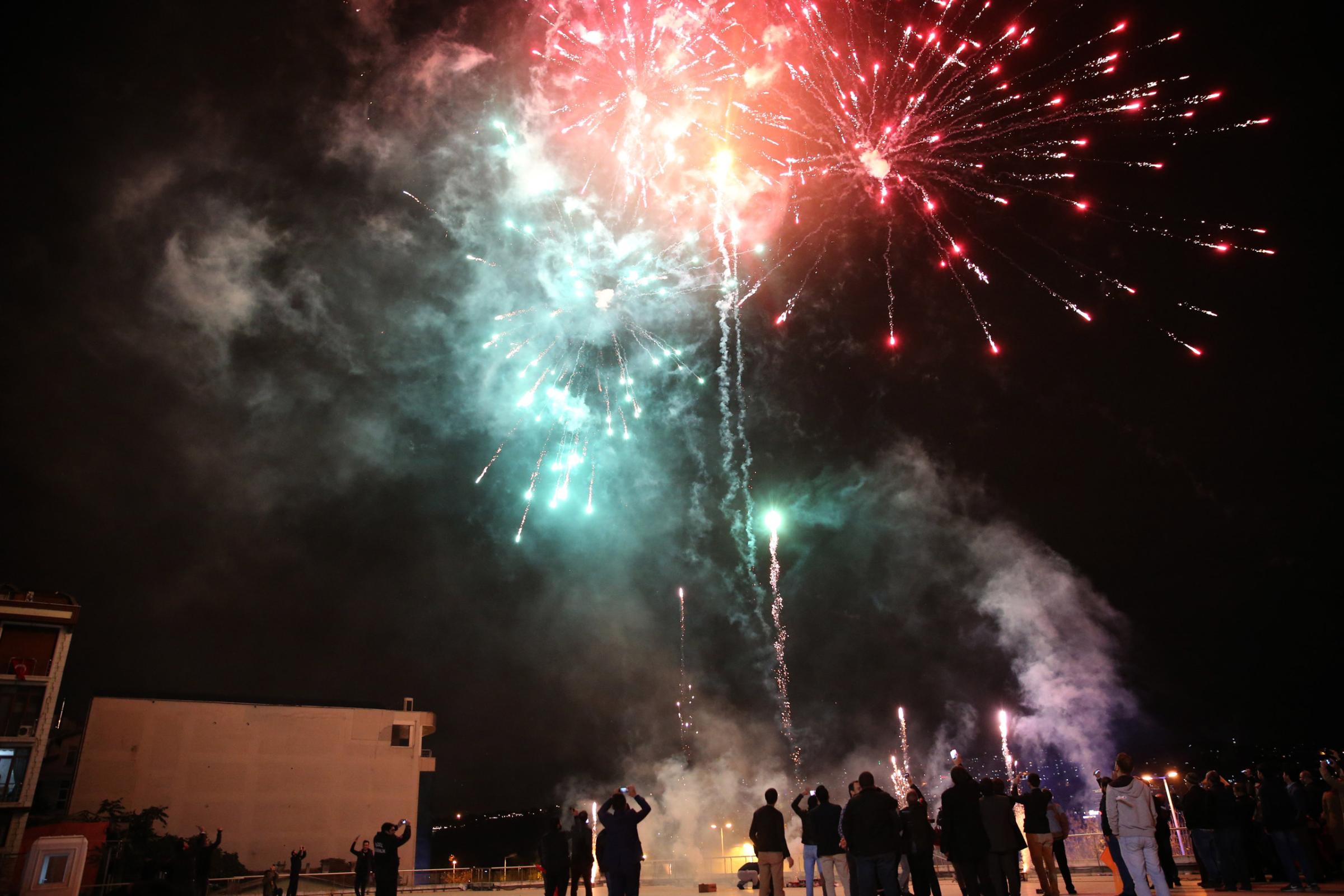
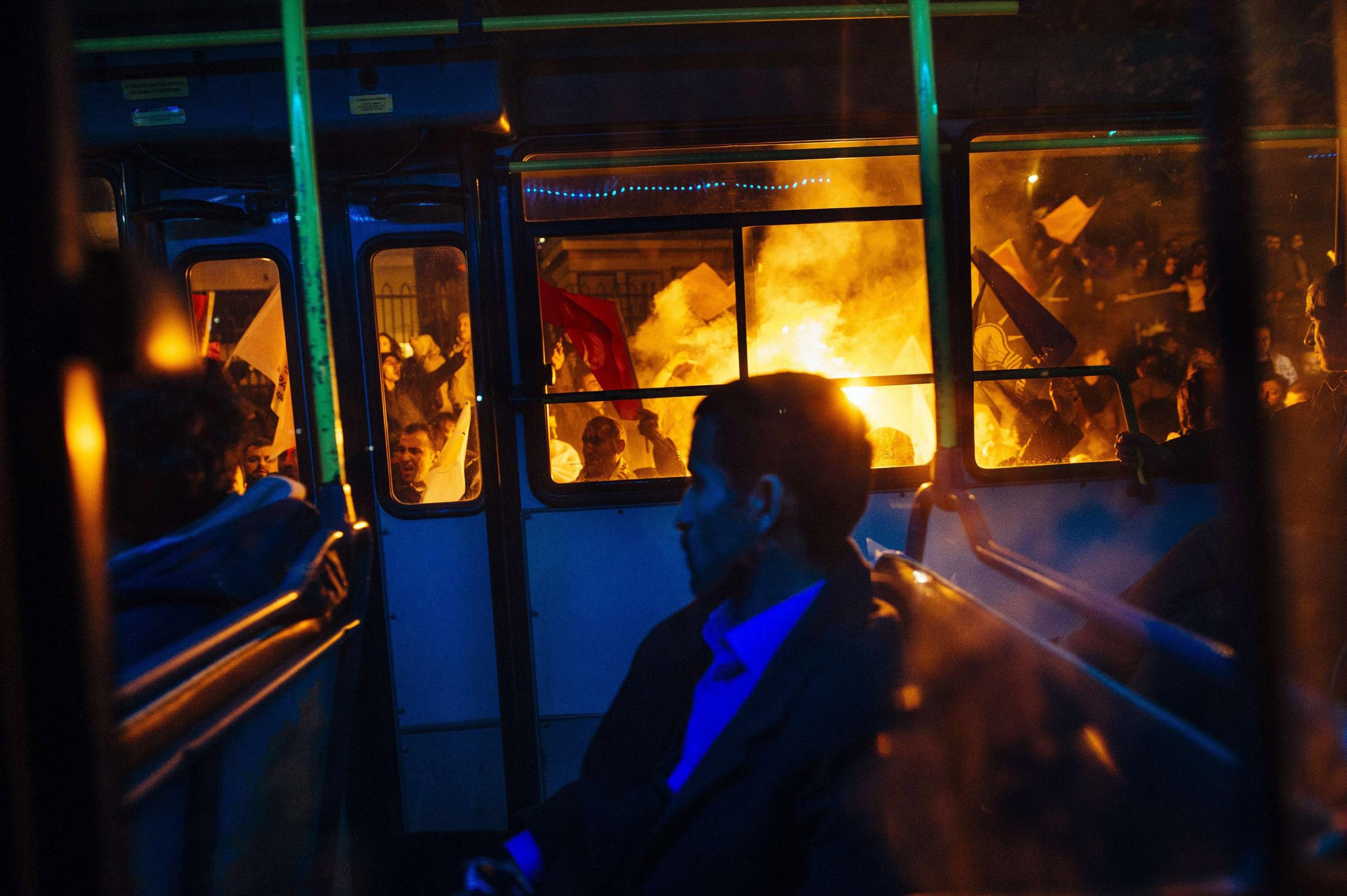
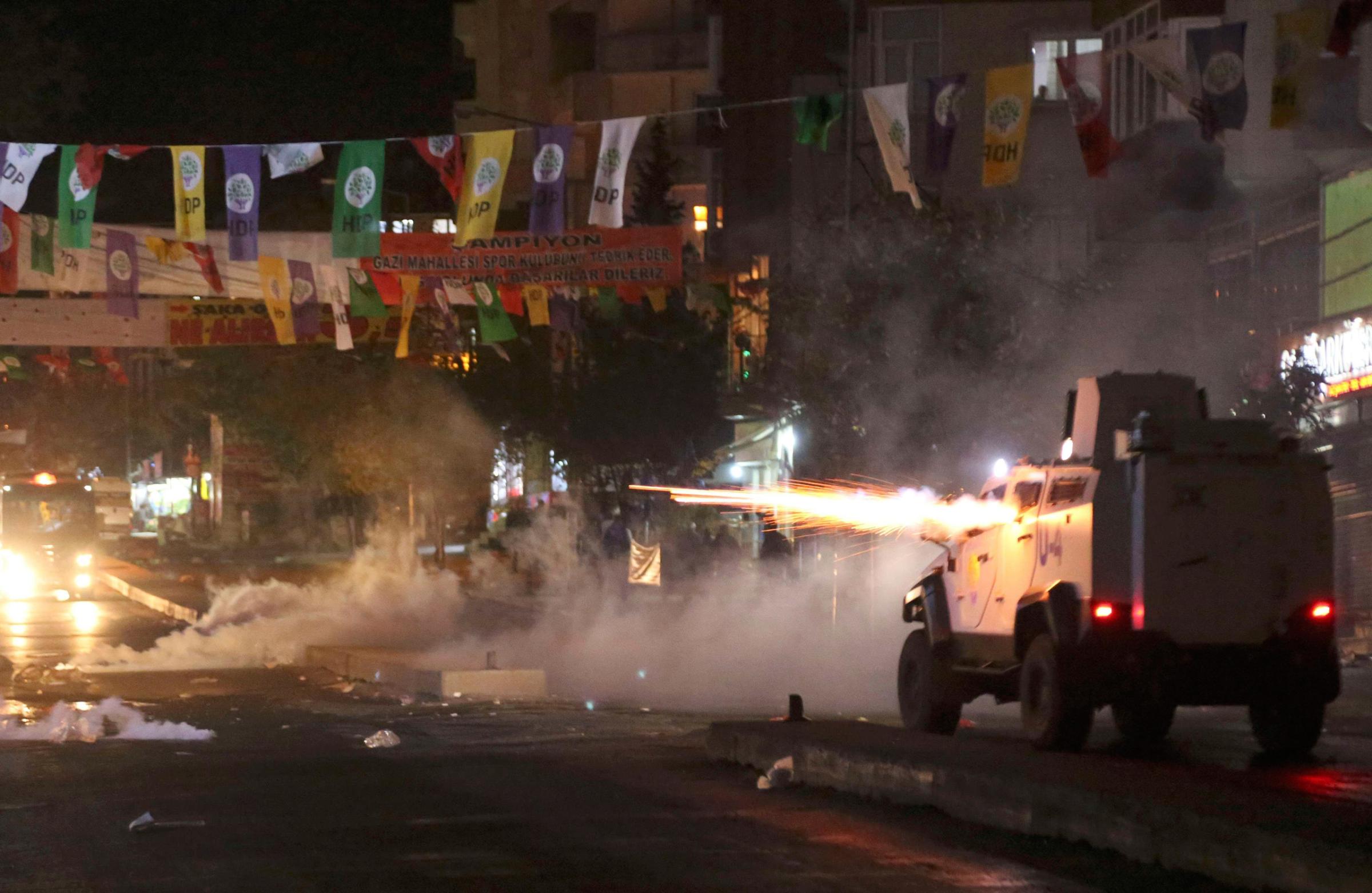
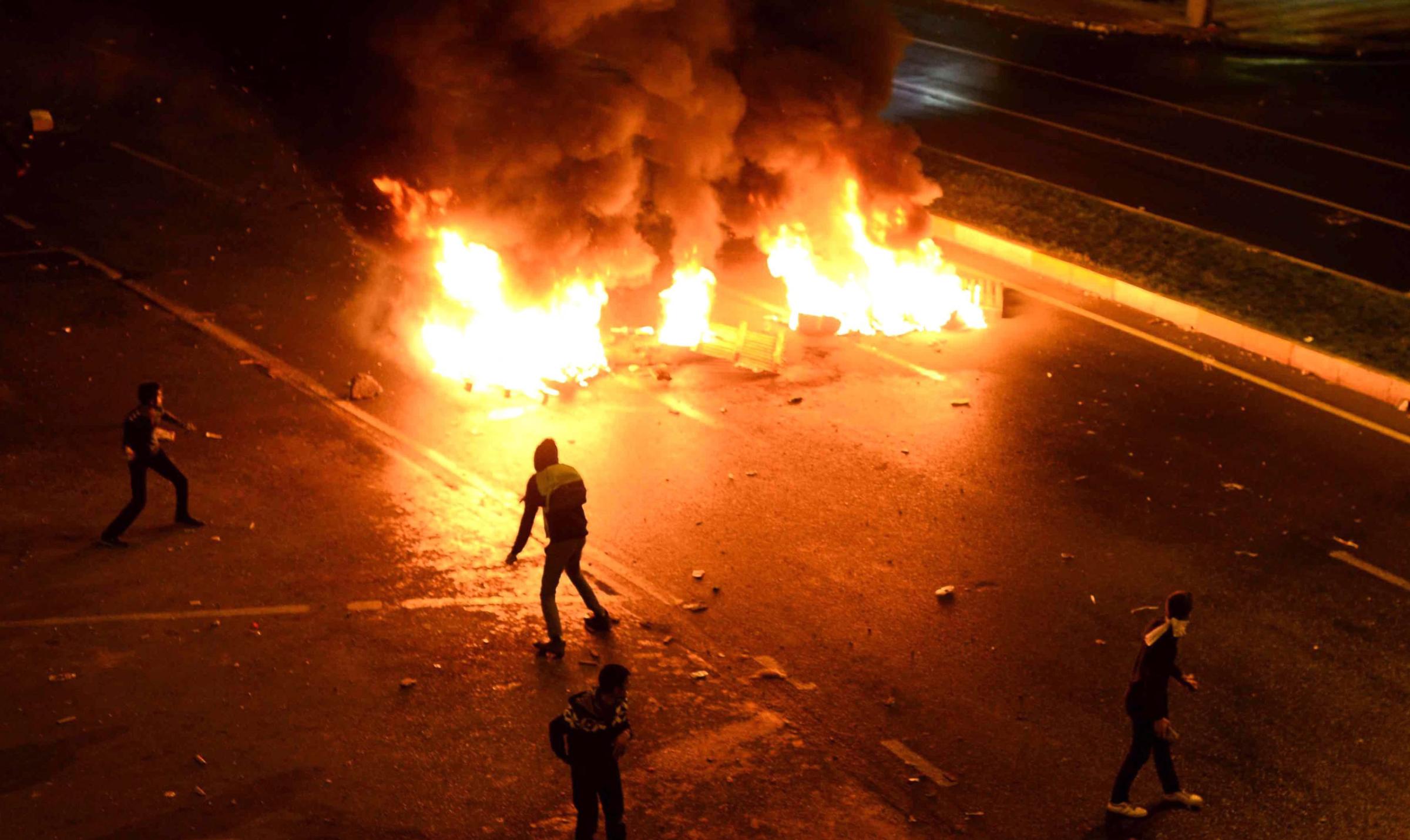
Göksel, of International Crisis Group said one reason for the shift in outcomes since the June election was “the conflict with PKK, the heavy-handed approach to PKK and the de-legitimization of HDP” as well as “the impotence attributed to them, the alleged connection to the PKK, holding them responsible for the violence.”
In interviews on election day, supporters of the rival camps often seemed to exist in different worlds, reflective of the deep schism in Turkish politics.
On Sunday morning at a polling station at a school in Istanbul’s Üsküdar district, AKP supporters gathered in the cold awaiting Erdogan, who votes in that district. Erva Kan, an AKP youth wing member was among them. “AKP is the party that actually brought political stability to this country. In the past 80 years we have had four coups,” she said. “I believe that this party will continue to make even more improvements and move this country forward.”
On the opposite, European bank of the Bosphorus, in Istanbul’s Sisli neighborhood, a teacher named Serap Can was accompanying a friend to vote in a local school. Can voted for the pro-Kurdish HDP and was carrying a wide-frame drum called a daf, in anticipation of a celebration of a successful night for the leftists. “All the representatives of the HDP are working for the brotherhood of all the ethnic groups of Turkey. I believe they will represent the minorities,” she said.
Around the corner, at the local polling station, a pianist named Recai Gülsei was smoking a cigarette in the school parking lot. He said he had voted for the secularist CHP, another opposition party that claimed the second largest share of the votes on Sunday. He views Erdogan as an autocrat. “Nowadays there is no freedom at all. I’m voting for freedom,” he said.
The questions now facing the AKP government is how it chooses to negotiate an explosive political situation, and whether it can bring together a polarized electorate. Whether this weekend’s victory will moderate or exaggerate the party’s autocratic streak and how it will effect the recent military campaign against Kurdish armed groups remains to be seen.
More Must-Reads from TIME
- Why Trump’s Message Worked on Latino Men
- What Trump’s Win Could Mean for Housing
- The 100 Must-Read Books of 2024
- Sleep Doctors Share the 1 Tip That’s Changed Their Lives
- Column: Let’s Bring Back Romance
- What It’s Like to Have Long COVID As a Kid
- FX’s Say Nothing Is the Must-Watch Political Thriller of 2024
- Merle Bombardieri Is Helping People Make the Baby Decision
Contact us at letters@time.com